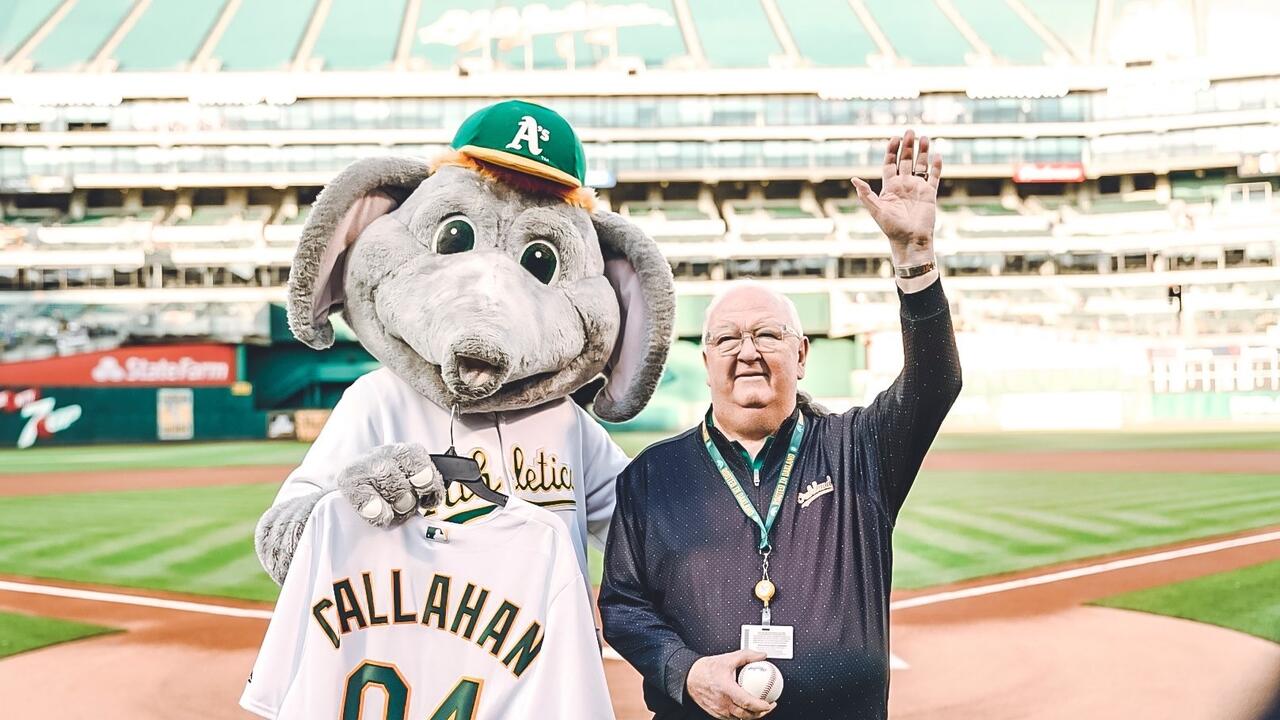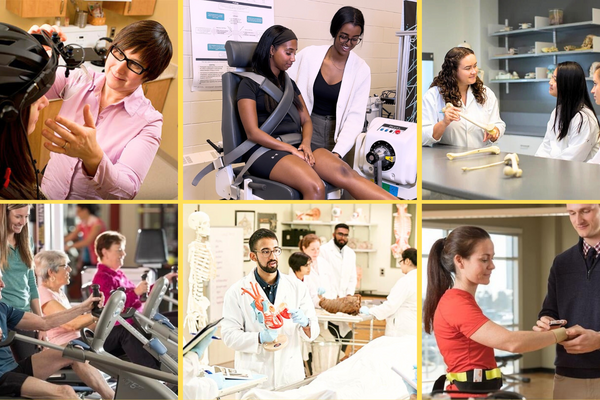
Ready when the bell rings
A little audacity — and endless grit — enabled Dick Callahan (BA ’62) to build a dream career as a sports announcer.

A little audacity — and endless grit — enabled Dick Callahan (BA ’62) to build a dream career as a sports announcer.
By Claire Mastrangelo Office of AdvancementDick Callahan (BA ’62) started university thinking he’d become a priest, or maybe a teacher. It turned out, he had a different calling.
While studying Latin at St. Jerome’s University, Dick played on the Warriors men’s basketball team. His athletic career ended abruptly when he injured both of his ankles in his junior year. Still, his love of sports kept him close to his team. He attended every game, at home and away.
One night, when the Warriors’ public address announcer cancelled just before the game, Dick seized an opportunity that would change the course of his life.
“I was sitting outside the locker room when Carl Totzke, the athletic director, came over and asked if we knew anyone who could take over,” he said. “I raised my hand.”
Carl asked if Dick had any experience, and Dick replied that he’d announced his high school games. Satisfied, the director sat him behind the mic. Dick rallied the crowd with his rich baritone voice.
The truth was, Dick had never announced a game before — but the risk paid off.
“At the end of the night, Carl said I was pretty good. So, I got to stay on.”
While Dick’s boldness landed him in the announcer’s chair, his tenacity enabled him to build a career in sports. He worked in the insurance industry by day and hustled to find announcing gigs by night. Between games, he practiced with recordings of Monday Night Football and called out imaginary plays as he drove to work.
“I still prepare for every game as if it were my first,” Dick says. “I don’t believe there’s any substitution for preparation. You have to be ready when the bell rings.”
More than a decade passed — with moves for work and cold calls to local schools and radio stations in search of announcing jobs — before Dick landed in California. There he built his own insurance company and started announcing for the Golden State Warriors. It was a good balance, allowing him to pursue his passions while raising a family.
Dick spent nearly 20 years with the Warriors before moving to the Oakland Athletics. Last May, he announced his 1,000th game with the Major League Baseball team. It happened to be a rare no-hitter — a feather in his cap to complement another no-hitter and a perfect game. Perhaps the biggest thrill of his career, which spans more than 2,700 games, was sharing the mic with his six-year-old granddaughter, Amelia, at a recent family day at the Oakland Coliseum.
“She did fabulously,” he says, “and she loved it. Right as we were finishing, she looked at her mom and saw that she was crying. I told her that her mom was proud of her.
“Little did she know I was a second-and-a-half away from crying, myself.”
Dick cherishes the moments of connection that he experiences as an announcer — with his family, but also with fans who draw inspiration from his journey.
“I’ve been very blessed with the things I’ve been given,” he says. “If I can help one person navigate their life, it’s been worthwhile.”
Coming full circle, Dick pauses to reflect on his first announcing gig back in the PAC.
“If the people at St. Jerome’s and the University hadn’t given me the opportunity, I don’t know if I’d be here today,” he says. “I’m very grateful.”

Read more
From optometry and pharmacy to public health and therapeutics, Waterloo alumni are powering Canada’s health care sector

Read more
A winter holiday message from President Vivek Goel

Read more
Researchers awarded funding to investigate ecology, climate change, repatriation, health and well-being through cultural and historical lens
The University of Waterloo acknowledges that much of our work takes place on the traditional territory of the Neutral, Anishinaabeg, and Haudenosaunee peoples. Our main campus is situated on the Haldimand Tract, the land granted to the Six Nations that includes six miles on each side of the Grand River. Our active work toward reconciliation takes place across our campuses through research, learning, teaching, and community building, and is co-ordinated within the Office of Indigenous Relations.